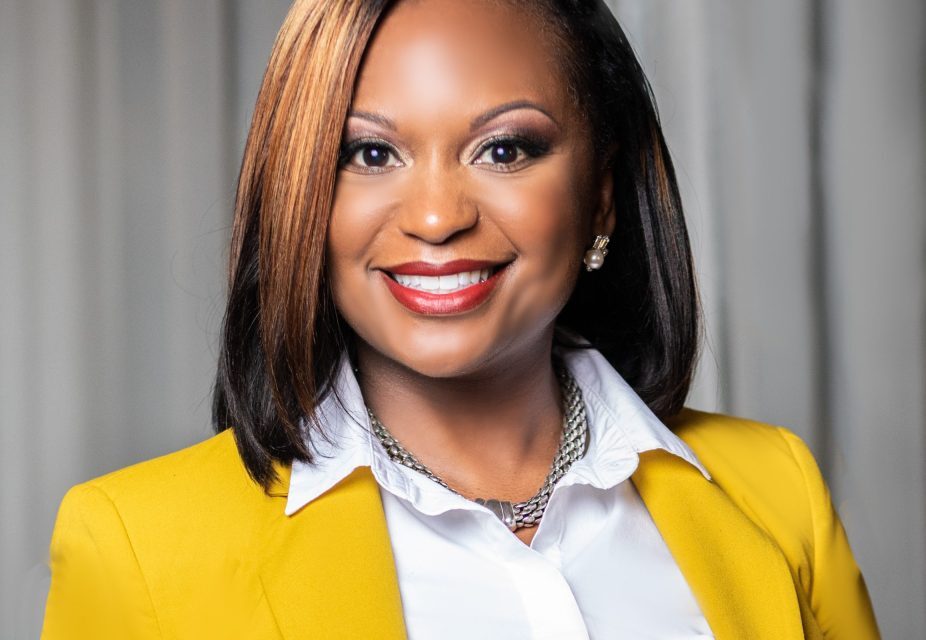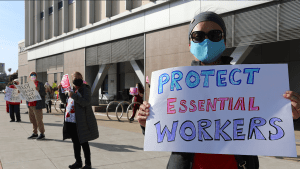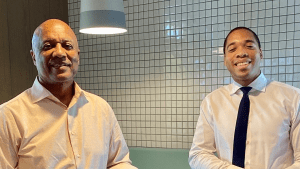By Megan Sayles
AFRO Business Writer
msayles@afro.com
President David K. Wilson named alumnae Endia DeCordova vice president of institutional advancement for Morgan State University (MSU) and executive director of the Morgan State University Foundation last March after leading a national search. The former vice chancellor for advancement at Rutgers University returned to her alma mater in July to officially start the position.
In her role, DeCordova’s focus is attracting funding, volunteerism and other resources that will help move MSU’s vision, mission and core values forward. As head of the university’s foundation, she also monitors all of the philanthropic gifts that come through the historically, Black university.
“I take great pride in knowing what this institution has done for me,” said DeCordova. “Coming back and leading in this space to help usher our university into the next phase of our momentum is exciting and fulfilling.”
“HBCUs are critical today more now than ever. This is a space where diversity has always been at the cornerstone of who we are.”
The AFRO recently connected with DeCordova to learn more about how she’s driving philanthropy at MSU. The responses below have been edited for length and clarity.
AFRO: What goals were top of mind for you when you became MSU’s vice president of institutional advancement and head of the Morgan State University Foundation in July?
Endia DeCordova: The first thing was for us to continue to strengthen the culture of philanthropy at Morgan. Morgan is the largest HBCU in Maryland, and we have been very successful in raising transformational gifts over the years. We’ve also received a lot of support from the state and federal government. We’re determining how we can sustain this level of support overtime, which means creating a culture where everyone sees themselves in the action of being philanthropic.
The other thing I wanted to do right away was to provide more resources for my team. Over the years we’ve seen the tremendous growth of Morgan, but in our particular division, there’s an opportunity for us to grow in staff and professional development. I’m looking at where we need to add more capacity on our team so we can continue to raise the kind of funds that are required to meet the needs of our university.
The third goal is identifying opportunities to invest in more resources for Morgan’s growth areas. We have the new Health and Human Services Building opening in 2024, and there’s new exciting opportunities for endowed chairs. There’s also great programming already happening in our schools of engineering and business. We have to continue to tell the story of Morgan to get more investors and individuals to support the work we’re doing in these spaces.
AFRO: What are some of the recent philanthropic gifts MSU has received?
ED:Recently, BGE committed more than $1 million over the next four years to support scholarships and grants that address educational expenses and research in the area of engineering. At Morgan, the school of engineering is a big initiative for us and having that level of investment is critical.
The Wells Fargo Foundation recently gifted us $1 million to help with a student housing project. As we see our enrollment numbers increasing so is the need for student housing. Having a funder like Wells Fargo come in to help fill that gap has been instrumental. Then, our very own president, Dr. Wilson, gifted the college his $50,000 award from the Harold W. McGraw, Jr. Prize in Education. He gave it right back to the university for the Leading the World Endowment Fund, demonstrating in real time how he’s not only talking the talk but walking the walk.
One of the things I really want to stress though is that all gifts matter. A lot of times when we think about philanthropy, many individuals think they have to have a certain amount of money or status to give back. I argue that anyone can give back and that all giving counts. Oftentimes, we highlight the very big gifts, but the small gifts matter too because at the end of the day, they all add up to allow us to do great things at Morgan.
AFRO:MSU’s 39th Annual Homecoming Gala is approaching, why is this event so important to support?
ED: We have our 39th annual homecoming gala that was postponed coming up on Dec. 8. It’s one of the largest fundraisers for Morgan where we raise critical dollars for scholarships for our students. This event is not only a party with a purpose— it allows individuals to meet with alumni, our president, members of our board of regents and some of our stellar students who are the recipients of the funds we raise.
Because we had to change the date, we unfortunately lost some of the initial guests who would have attended. With this new date, we’re hoping that others who may not have had the opportunity to attend the gala in the past will consider showing up to support. It’s really an opportunity to give back.
We’re marketing it as “Home for the Holidays.” People can come home to Morgan for the holidays and celebrate all of the successes and accomplishments we’ve made over the years. Being a part of the celebration is something I’m inviting all to attend.
AFRO:More broadly, why is it critical for people to support HBCUs?
ED: HBCUs have played an important role in American history. There’s no doubt about it. Even today if you think about our leaders of color, many have graduated from an HBCU. The work that we’re doing in these spaces is connecting in real time with societal issues. HBCUs are critical today more now than ever.
This is a space where diversity has always been at the cornerstone of who we are. Educating the top of class and providing the next wave of leaders for our world has been the mission of the HBCU education, and I think that’s something we should always remember.
With the Supreme Court decision that recently came down on affirmative action, we see more and more institutions holding onto these distinctions, like minority-serving institutions, hispanic-serving institutions and HBCUs. We are spaces that train the best of the best and spaces where access is available to all.
Megan Sayles is a Report For America corps member.
The post Meet Endia DeCordova, Morgan State University’s vice president of institutional advancement appeared first on AFRO American Newspapers.










